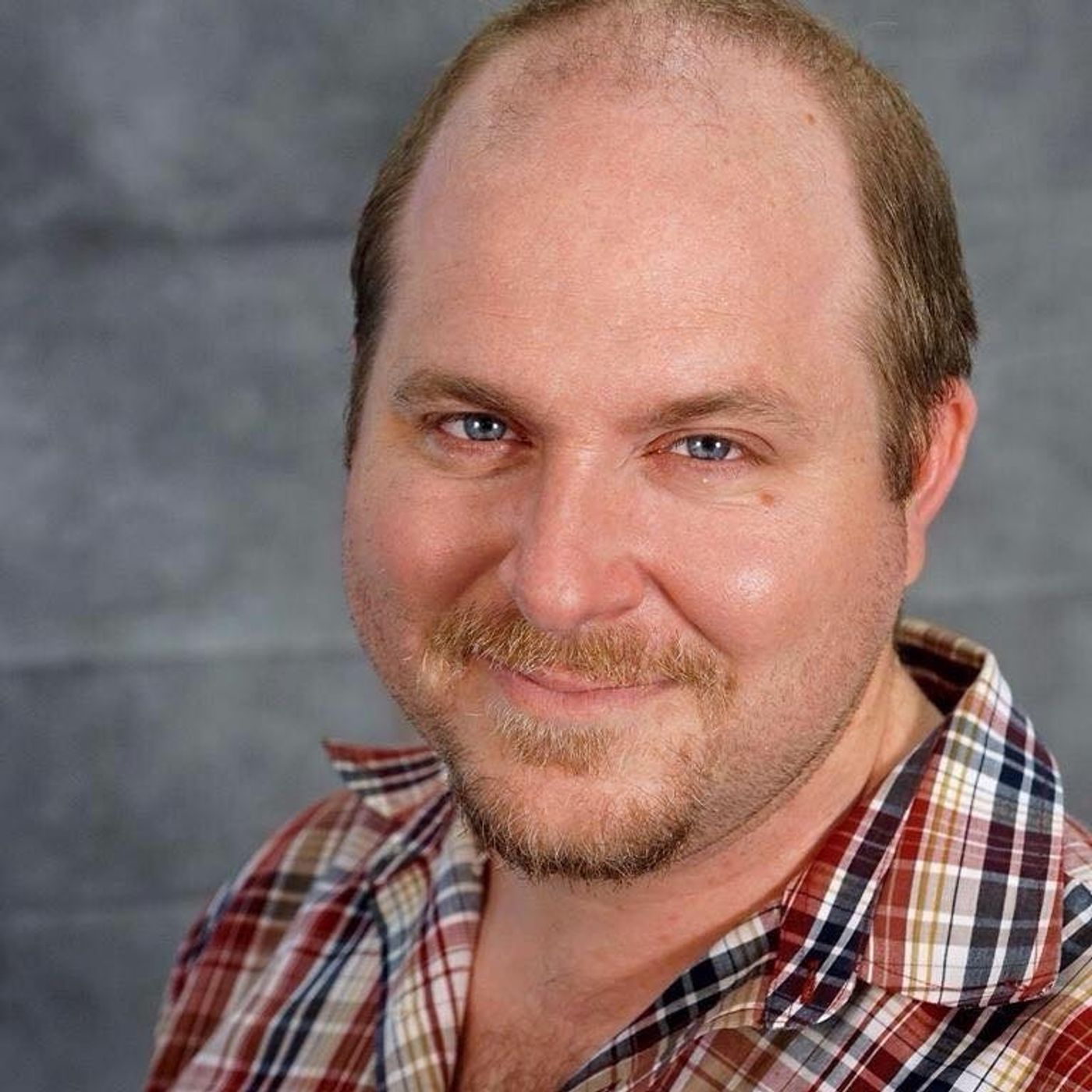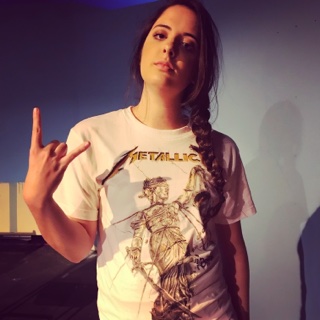Interview: Brian Robert Harris of FIVE WOMEN WEARING THE SAME DRESS at Camarillo Skyway Playhouse

When Five Women Wearing the Same Dress makes its debut February 2 at the Camarillo Skyway Playhouse, last weekend's women's marches will still be fresh in the minds of members of the theater community. The staging of the 1993 play, which was written by playwright/director Alan Ball, comes at a timely moment in American history, with women asserting their rights for equal treatment under the law at home and in their places of employment. The recent #MeToo Movement has also put an exclamation point on the relevancy of the play. CSP's production is being directed by Brian Robert Harris, who has taken his position as a man as a challenge in directing the female-dominated cast. We spoke with Brian about this unique opportunity for him to use the play as a learning as well as teaching experience for actors and audience members alike.
VCOS: What made you decide to direct this play?
BRIAN: It's a play that I saw when I was in college. A teacher/director named Valerie Greer directed it and I was struck at the time by what a different world it presented to me as a man, the way that these women talked to each other, what they talked about, and their overwhelming concern about predatory men. I was about 25 or 26 when I first saw it and this was my first hint that there was a very dangerous world out there that I was not privy to, and in fact, may have been contributing to.
VCOS: Are there certain parts of this play that summon forth current events with the #MeToo movement?
BRIAN: Yes. But I don't want to go into too much detail because there are plot spoilers involved, but absolutely, it's infused with it. It's a real, honest, and in some ways, a brutally honest discussion of ways in which men manipulate and endanger women.
VCOS: How long has this play been out?
BRIAN: It actually came out in 1993.
VCOS: Right at the start of Bill Clinton's presidency.
BRIAN: Yes. And it's written by a man, Alan Ball, who wrote Six Feet Under, True Blood, Cybill, and some other things. Allison Janney starred in the original production Off-Broadway. It's powerful drama, but it's also a very, very funny piece. At the time, I thought that it provides all these great roles for female actresses, some of whom I knew personally, who I'd never seen do work like that before. So this play has always been in the back of my mind. Every couple of years I'd pitch it to one of the theaters in the area but no one seemed to have much interest in it. There's one theater in particular, which will go nameless, that didn't want to do it because they thought it had a lot of drug use in it and the characters weren't behaving like "ladies" - but it's real! They talk about sex and about drugs and about the ways they use to cope in the world they live in. That's astounding to me. So I wanted every man who saw it to have the same experience that I did when I first saw it, which was kind of eye-opening. For me, this was kind of an awakening.
VCOS: Has the world changed much in the last 25 years or is it just becoming more exposed now?
BRIAN: I think it's just getting exposed. I think it's always been there. Now, we're just getting to a place where women are done putting up with it. Maybe Trump's election had something to do with it, I don't know. They're done putting up with being second-class citizens.
VCOS: The show that immediately comes to mind when I think of this is 9 to 5.
BRIAN: Yeah, there are some similarities there, some analogous things happening.
VCOS: Is this play as over-the-top as 9 to 5 is?
BRIAN: It's more realistic, I think. That's the other thing I like about it; it's really all about female solidarity. It's about five women from five relatively different backgrounds. One is an evangelical Christian, another one is a lesbian, one is a rebellious punk rock type, but what they have in common is this mutual experience of being poorly treated by men.
VCOS: Different men or the same man?
BRIAN: Mmmmm...
VCOS: OK, I won't go there.
BRIAN: (laughs) Patriarchy in general.
VCOS: What does the play's title refer to?
BRIAN: Well, it takes place at a wedding and these are all bridesmaids. None of them really want to be at this wedding and none of them really like the bride, so they all run around hiding in the bedrooms because they don't want to join in the festivities downstairs. I think it's also significant that it takes place in the South, specifically, Knoxville, Tennessee, a place where patriarchal culture tends to be a little more ingrained than other places in the country. So they hang out in this bedroom away from the stressful wedding situation and get to talking with one another and they find out a lot about each other and about their shared experiences.
VCOS: How did you go about casting this show? Did you have any pre-casting ideas in mind?
BRIAN: I had originally intended on pre-casting one actress because there was another play that we were going to do where we wound up not being able to get the rights. So I had pre-cast somebody in that role but I offered the part in this play to her and she decided that she didn't want to do it, so I ended up auditioning everything. I have a fantastic cast: Kelly Whitaker, Kelsey Klinghoffer, Julie Fergus, Sarah Boughton, and a newcomer who just showed up at auditions and really impressed us named Maddie Boyd.
Maddie Boyd in character.
This is a really great group of women who are very, very talented and they're working really hard. It's a challenging show because you've got the pathos but you've also got the comedy and you have to marry those and make them seem real. Alan Ball's a very skilled playwright who manages to create these three-dimensional relationships and that's something that we're working on. As an example - the evangelical Christian - a lot of actresses would focus on that particular aspect of the character and turn her into a kind of caricature. But Sarah is doing something very different with it with a lot more depth.
VCOS: Do these actresses get these things or do you have to work them and guide them away from doing stereotypes?
BRIAN: So far they've been pretty good about seeing it coming. My goal has been to say things to them to get them to go, "Oh, I hadn't thought of it that way." So I encourage them to really stretch and push.
VCOS: Does it help when a project like this has been in your head for the past 25 years? Can you still visualize with a fresh eye?
BRIAN: That's a really great question. With projects that I have a lot of admiration for and that I've seen done multiple times, I guess it's an advantage that I've had time to think it through, but at the same time, I'm concerned because I've seen really good productions of it and I don't want to ape what they're doing. I want to make it our own.
VCOS: But not just for the sake of doing something different.
BRIAN: Ideally, every project you work on, unless it's a world premiere, has already been done somewhere, but you want to bring to it whatever is in you to make it different. In my case, it's been a little nerve-wracking. I was joking with Jolyn Johnson, my producer the other night, when she said, "What are you going to say in this interview?" And I said I didn't know if I'm even the right person to be directing this play. I'm a man. One of the things I told the cast right up front was "I'm a man and being a man, there are some things that I'm going to miss and get wrong and there are directions that I'm going to give you that are going to sound like nonsense to you, and if that's the case, then you need to tell me." I can't know what it's like to be a woman. I can't know that. So that makes me a little nervous. I want to get it right.
VCOS: Have they made any suggestions that have corrected things you've done?
BRIAN: Yes, but gently. It's good that I've worked with four of the women in this cast and so they know me well enough to know that I mean well (laughs) and to tell me when I'm being a little wrongheaded.
VCOS: The last thing you need is to make the story come to real life.
BRIAN: Right! God, that's the last thing I need. But this is good for me, too, that's one of the reasons I wanted to do it. I learned a lot when I directed Dancing at Lughnasa a couple of years ago in Ojai because that was a cast that was also mostly women and I felt like "Oh, wow, this is so great - I'm learning all this stuff about human relationships and how women interact and how they see the world." It was so valuable for me as it would be for anybody. It's not something that we, as men, think about as much as we should.
VCOS: What you ought to do is quiz the male members of the audience after the show and see if anything had a profound influence on them.
BRIAN: It will be interesting to see how audiences react to this, but I'm looking forward to it. It's going to be a fun show.
VCOS: But leave the kids at home.
BRIAN: Oh, absolutely.
*************************
Five Women Wearing The Same Dress runs from February 2 to March 4 at the Camarillo Skyway Playhouse. For dates and showtimes, see the VC On Stage Calendar.
Videos


